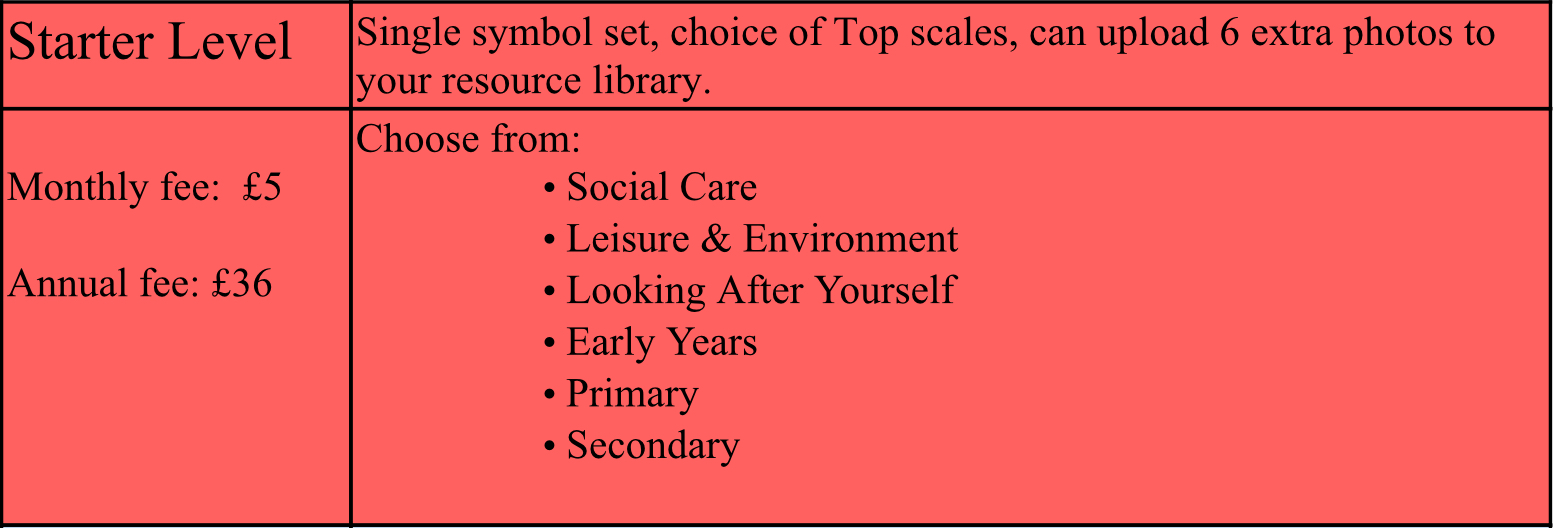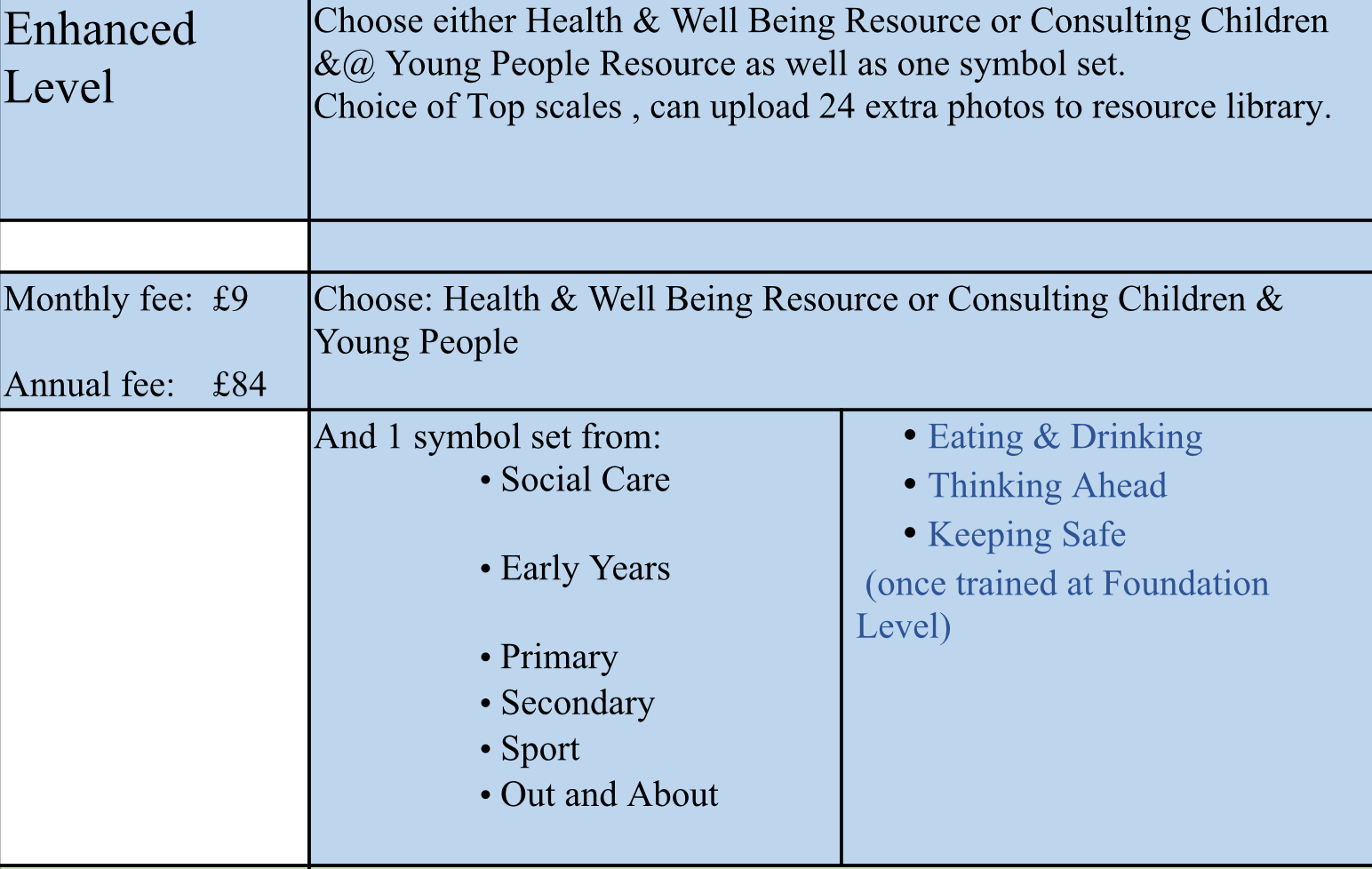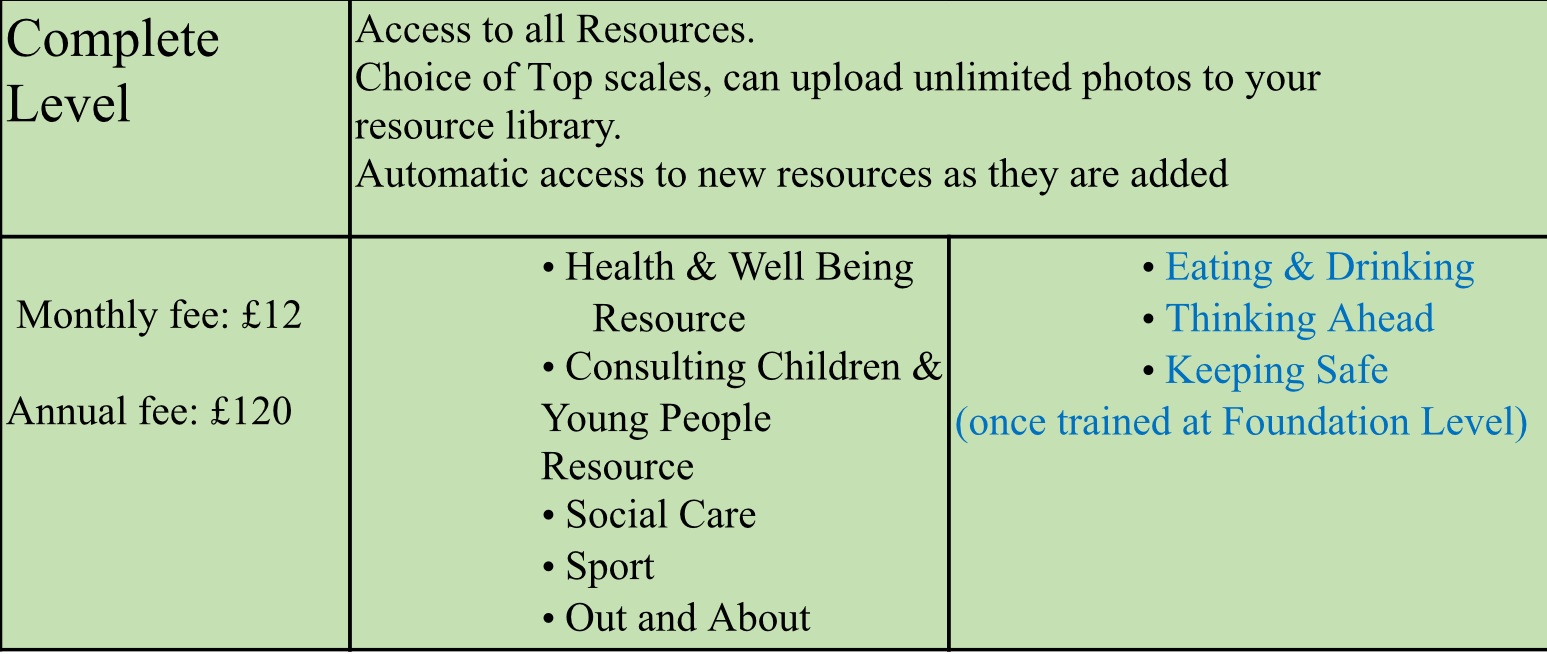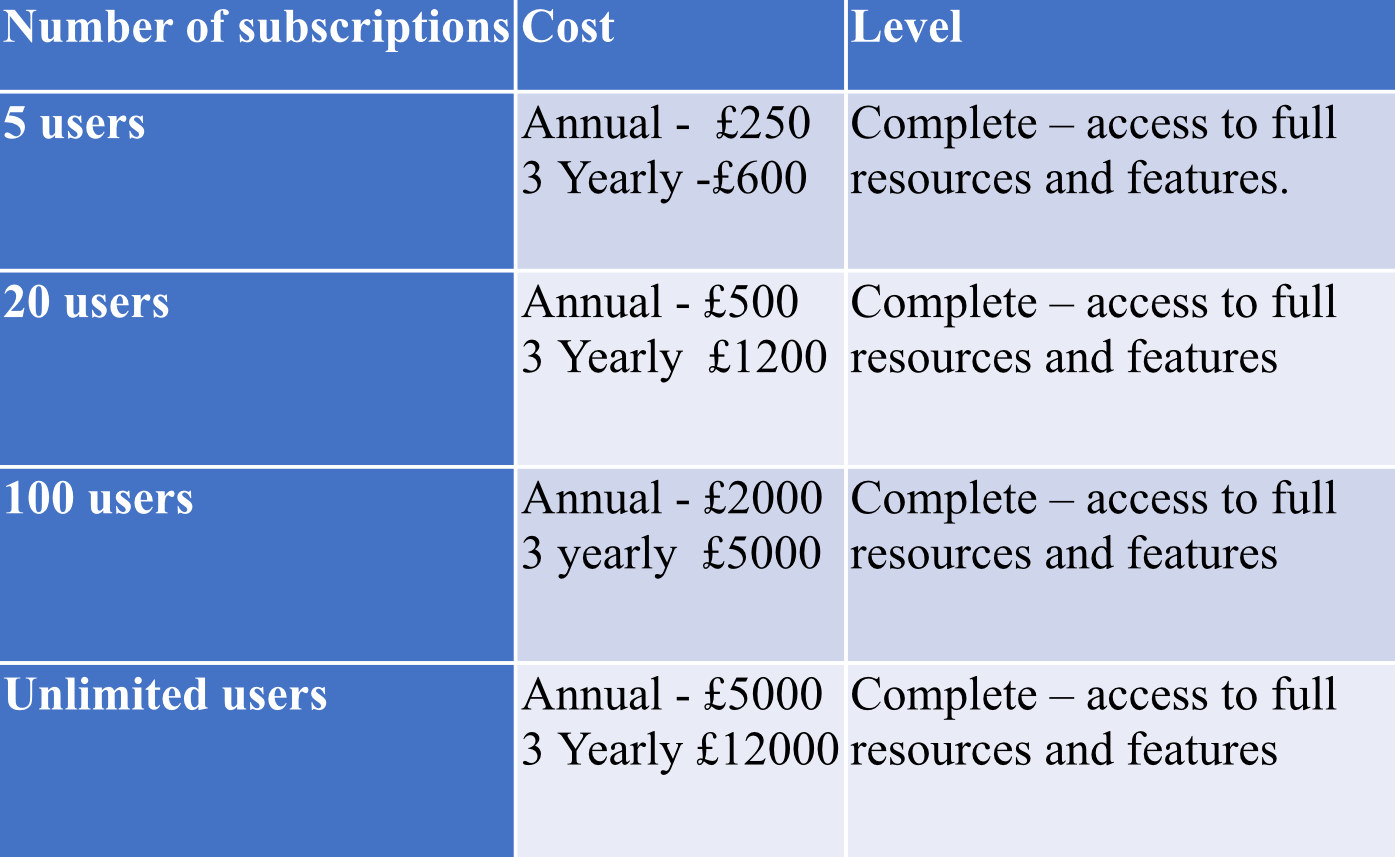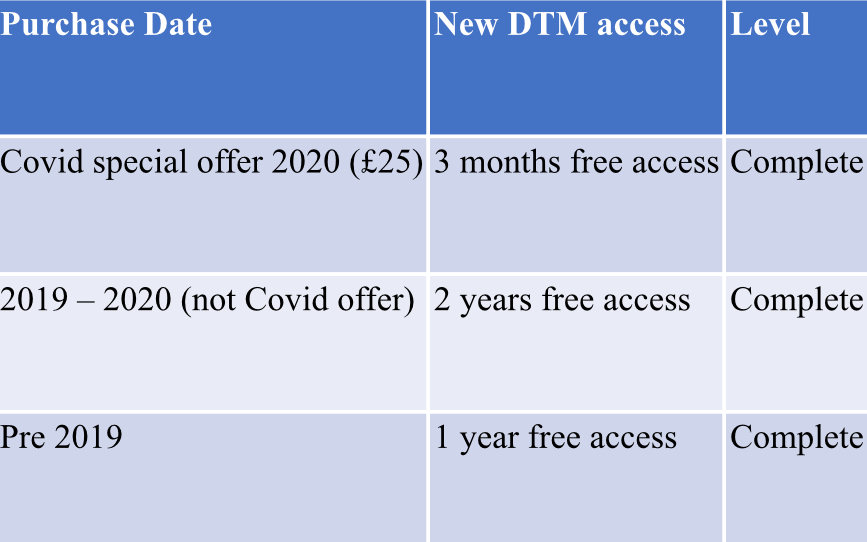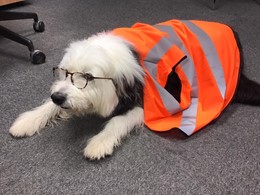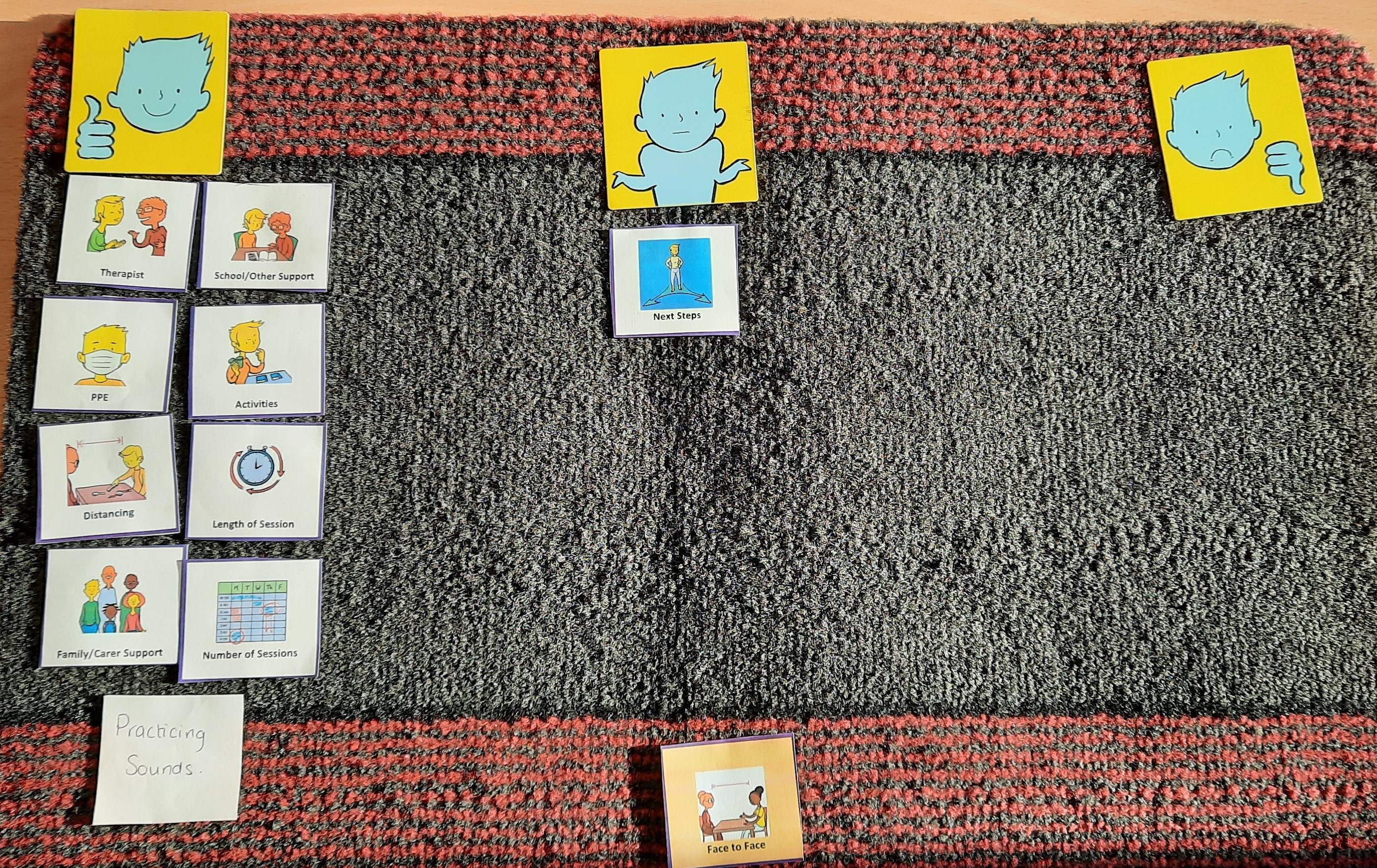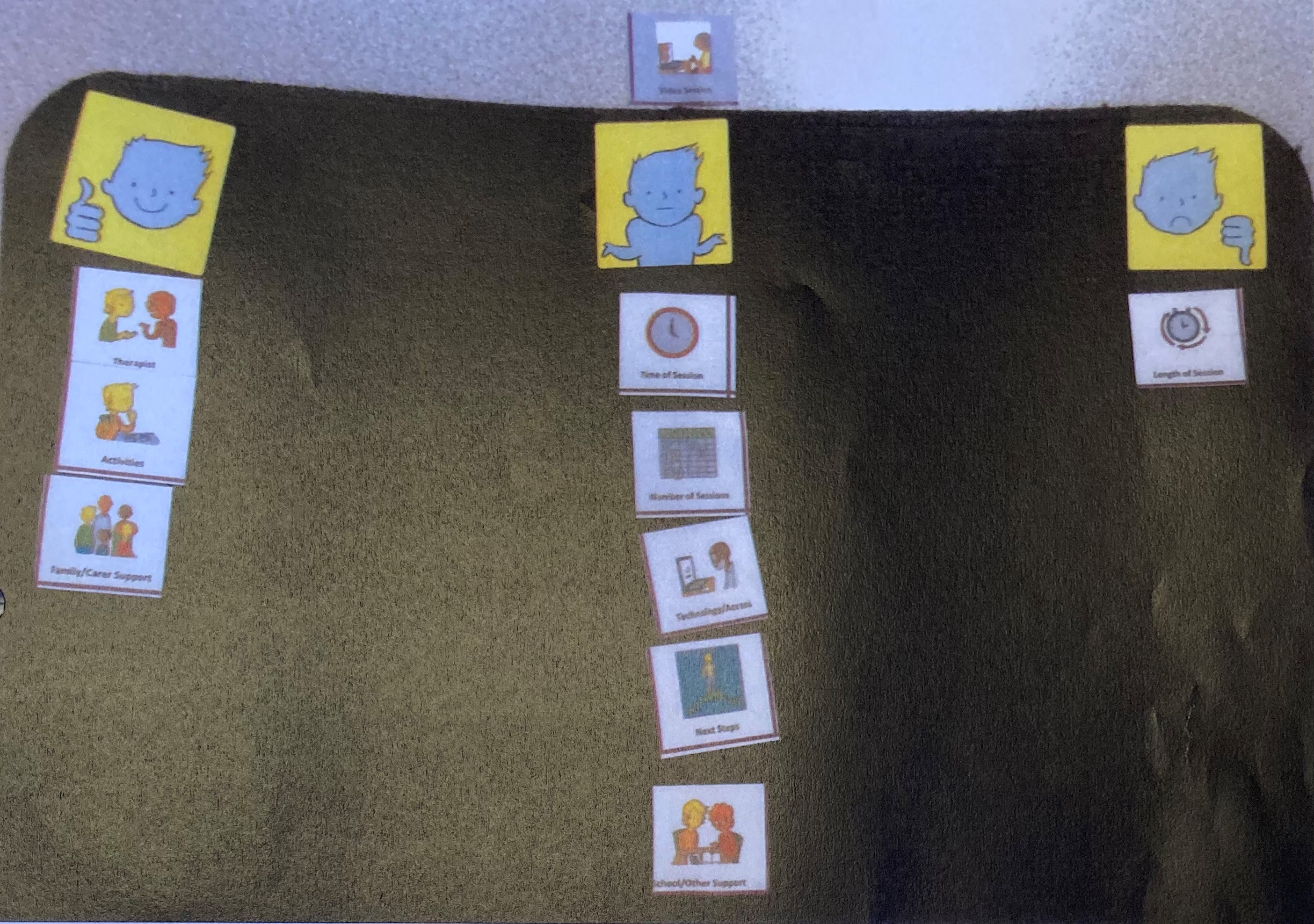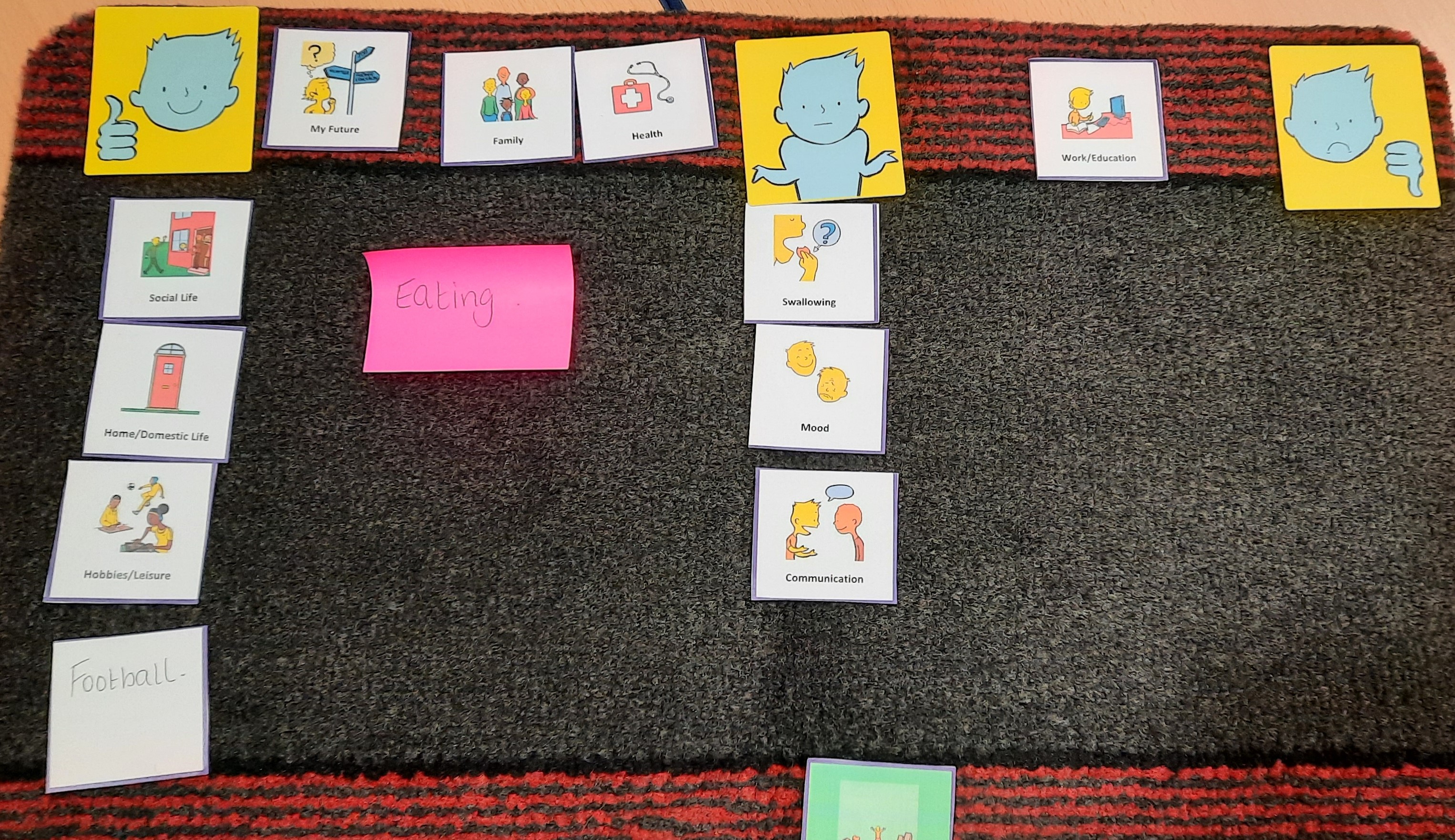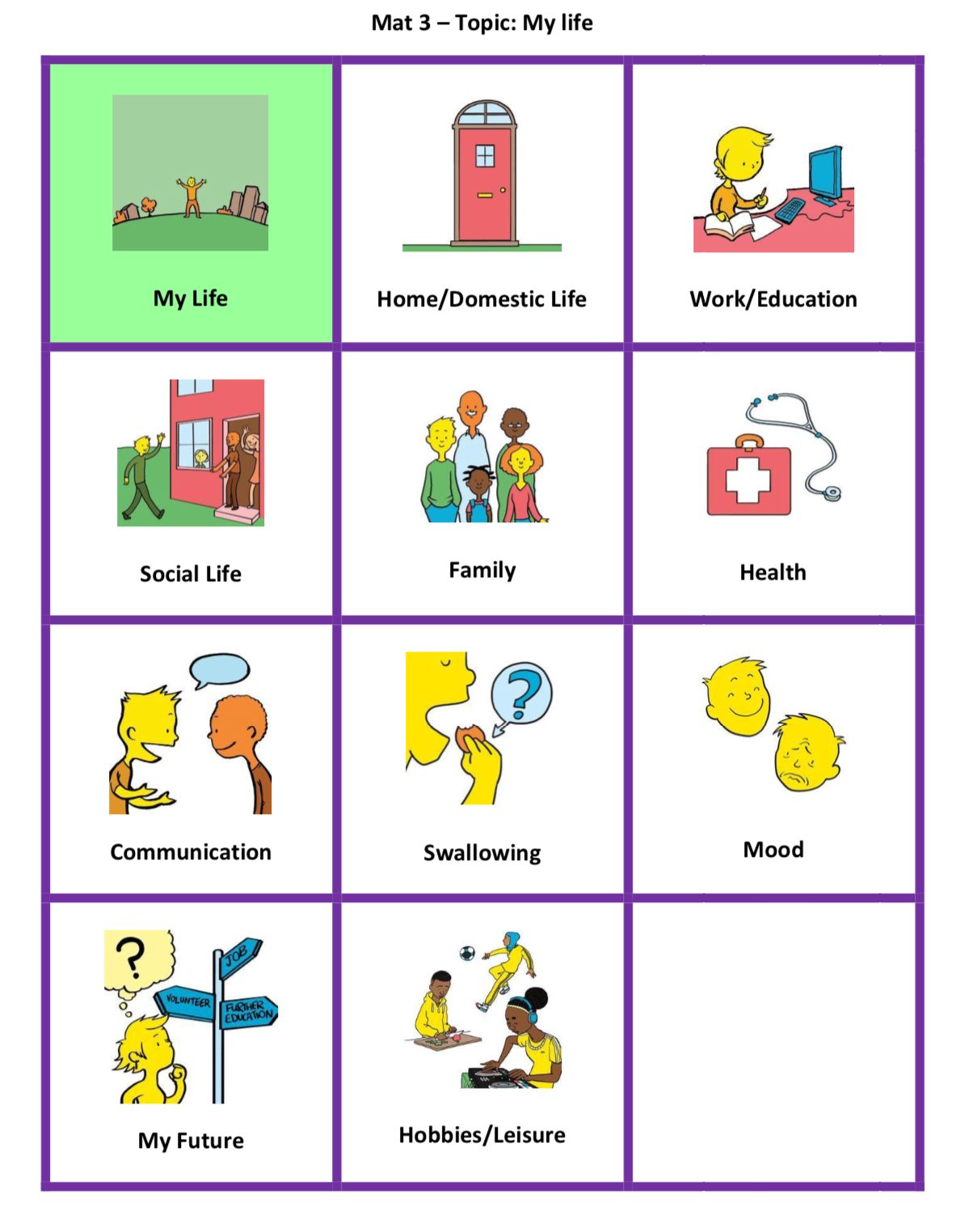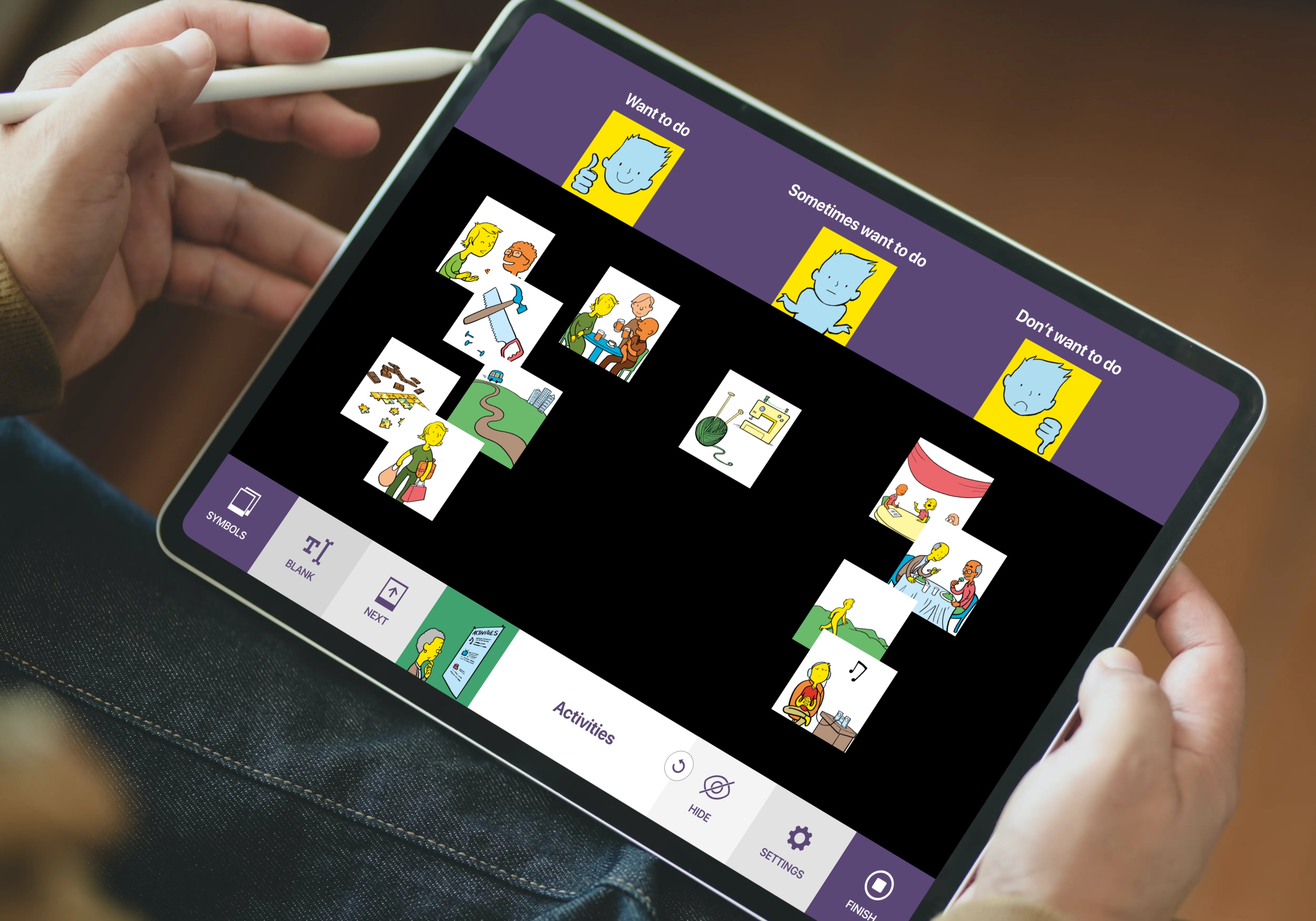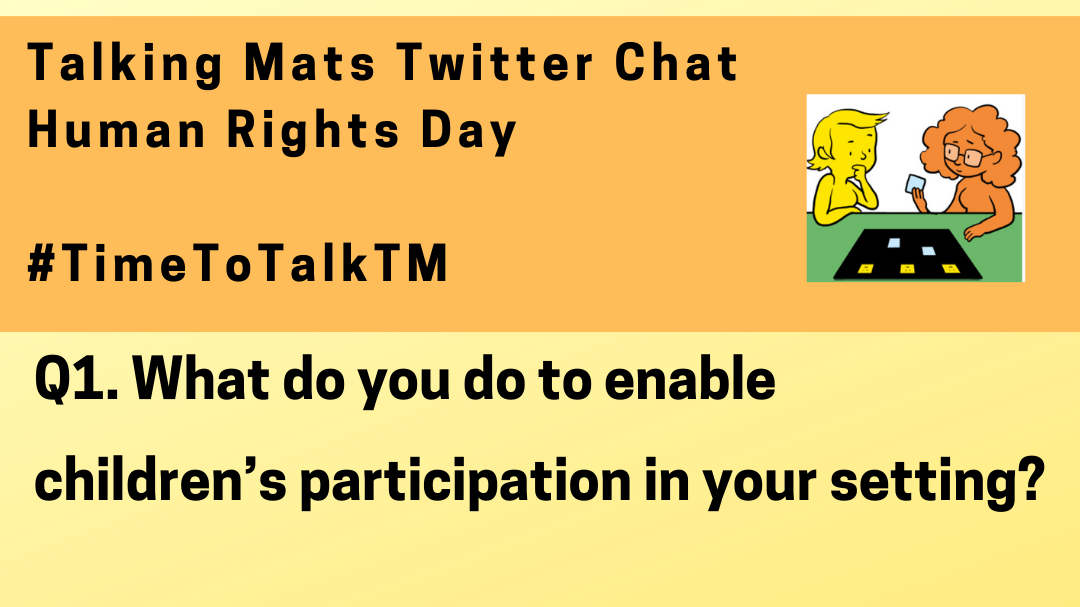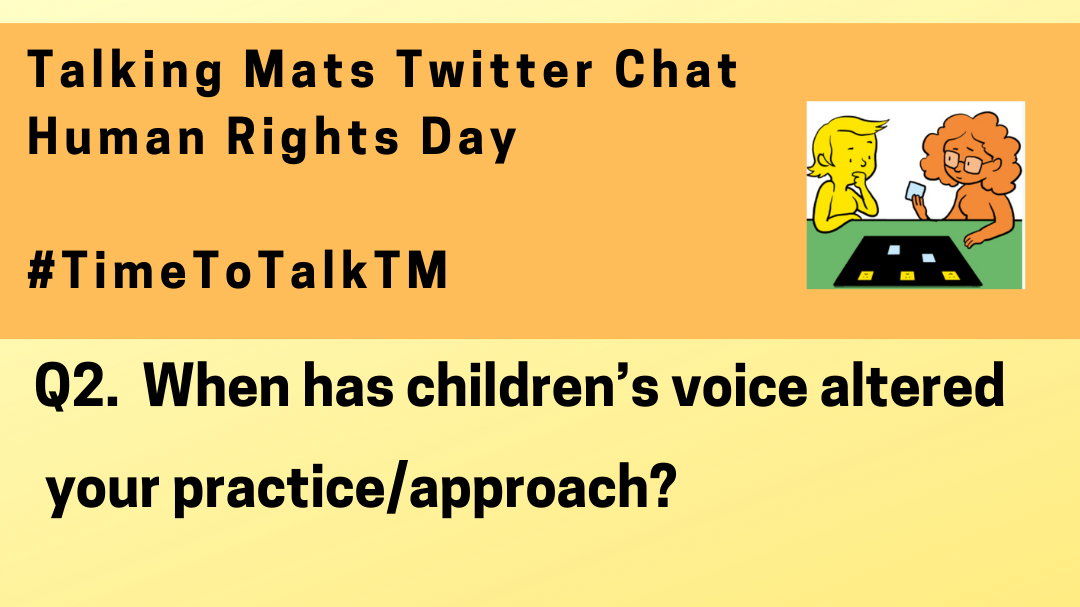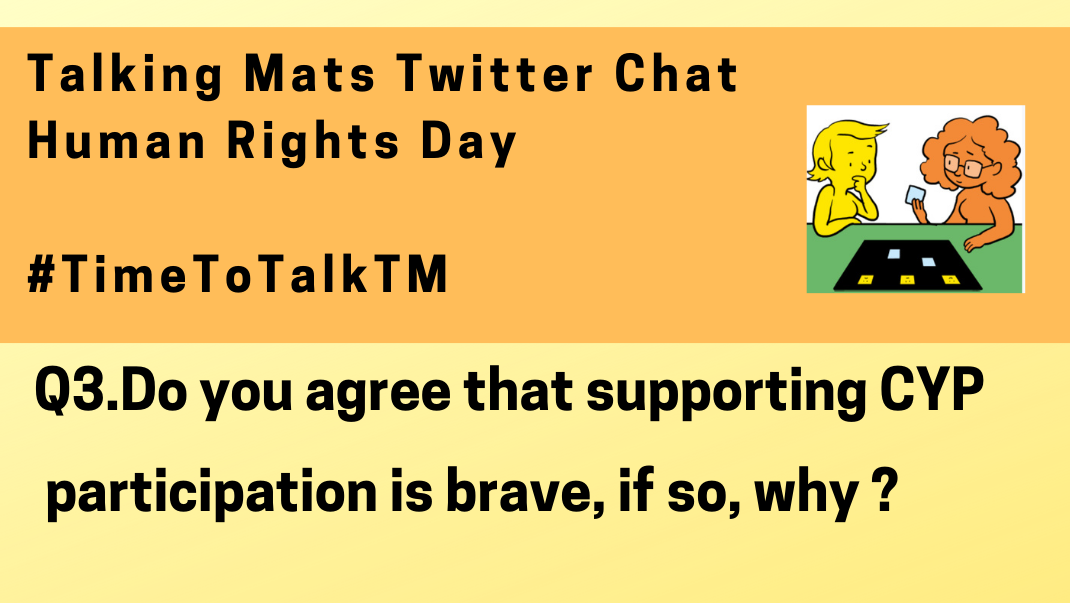What they are called, what they cost and what you get.
The re-developed Digital Talking Mats is nearly ready to launch with its new look and new functions. How you can buy it is new too so the team here thought we should put the new price structure down in black and white. The blogs we normally publish are interesting and thought provoking. I can tell you now, it is quite tricky to make a list of prices interesting or thought provoking, but I think you will be pleasantly surprised with the flexibility and creativity offered.
There are a lot of words used in these descriptions and because we use them every day we are used to them and know what they mean but sometimes we have to just stop and remember that’s not the case for everyone. So here is our Talking Mats Glossary to help.
Glossary:
DTM – Digital Talking Mats. Also referred to as the digital Resource, Digital App or digital V2
Foundation Level training – our training course that can be complete online or face to face (Covid 19 restrictions permitting)
Resource – a collection of symbol sets that has been created to look at a particular area, eg Health and Well Being.
Resource library – all the symbols you have access to on the DTM depending on your subscription level, including on any photos you may upload.
Symbol set – a collection of around 15 symbols looking at a particular topic.
Top scale – symbols that show what a person thinks with a positive point, a mid-point and a negative point.
We are switching to a ‘subscription’ model. This means you choose the level you want, and then how often you pay for it – monthly or yearly. For individuals we have 3 levels that provide increased flexibility and choice. Organisations can buy subscriptions for groups of staff at our most flexible level.
Individual Subscriptions:
Organisation Subscriptions:
The subscription model for Organisations that want to buy several digital resources can be either a Yearly charge or a 3 yearly charge.
To offer more control over your Organisation’s subscription each Organisation will be able to appoint someone to oversee the account who will be able to switch user emails as staff change.
Current Users:
Finally, for anyone who currently has a digital logon for our V1 app we will ensure the following:
We always recommend people access our Foundation Training course to ensure effective use of our resources. Our training is currently available online – find out more here: https://www.talkingmats.com/training/online-training/
So that’s it, the new Digital Talking Mats, What it’s called, what it costs and what you get. As always, we can be contacted on info@talkingmats.com if you have further questions.
Join the twitter chat exploring the recommendations of the Citizen’s Jury for people with intellectual disabilities and need for inclusive research practices In 2018 the Scottish Learning Disabilities Observatory and Talking Mats were funded by the Wellcome Trust to set up a Citizens’ Jury for people with learning/intellectual disabilities. We wanted to develop and test an adapted method of deliberative democracy, and hopefully to demonstrate that people with learning/intellectual disabilities can consider complex questions relating to health research. We also wanted to show that with resources, planning and good quality facilitation this could lead to valuable insights into inclusive research.
After a period of knowledge and skills development with our citizens’ jury members we held the jury over 5 days at the end of 2019. In early 2020 the Jury published their consensus report containing 10 recommendations for health research. You can watch a video the jury members made to communicate the recommendations here: Research Voices Citizens’ Jury: Our recommendations Involving People with Learning Disabilities – YouTube We believe that this report provides crucial insights into how people with learning/intellectual disabilities want to have their voices heard when it comes to health research. The next stage for us and the jury members is to secure further funding to build on this work and take forward the jury’s recommendations.
Through the Research Voices project we wanted to share our learning and develop resources that could be shared with the research community. Our evaluation report provides a detailed review of the Research Voices project with comprehensive information about the jury process and outcomes. There is an easy read version available.
On Tuesday the 8th of June we will host a twitter chat about inclusive health research from 7pm – 8p.m . We hope to welcome researchers, self-advocates, third sector organisations, carers and others to contribute to this discussion. If you have never joined a twitter chat before this is your opportunity. Here is how:
- At 7p.m on the 8th June go to twitter search on the hashtag #researchvoices.
- The first thing will be introductions – people can say who they are and where they come When you respond in a twitter chat always use the hashtag of the chat, in this case, #researchvoices. Using the hashtag allows everyone to see the conversation.
- Then we will post question 1 – when you respond to a question start with the question number e.g. Q1 but still remember to use the hashtag #researchvoices
- Later on question 2 and question 3 will be posted. To respond put Q2 or Q3 and the hashtag #researchvoices
- You can either respond directly to the questions or respond to the comments that other people have posed by saying what you liked or by asking them another question. Remember still use the hashtag #researchvoices in your response.
- Sometimes people just want to observe the conversation. That’s fine too but remember you can join in the conversation at anytime
- We look forward to seeing you on the 8th of June for this important twitter chat to share ideas and good practice
Questions….
Q1 How do the recommendations of the citizens Jury align with current research practice, what changes will you make to implement them, and what are the barriers to implementation?
Q2 What does successful inclusive practice look like to you – share your top tips for promoting inclusive research?
Q3 Inclusive research builds skills, expectations and connections with researchers with learning disabilities. Does the research community have responsibility for maintaining this long term and if so how?
In the UK we are emerging out of lockdown and there are concerns about the impact on the mental health of people at all ages and stages of life. This is a good time to reflect on the wide variety of blogs that have signposted how useful Talking Mats can be in helping people to think, structure coherent responses, and express their views. If this is an area of interest to you then take a look at these blogs to find out more:
- Edith Barrowcliffe from The Action Group demonstrates how Talking Mats has allowed individuals with intellectual disabilities access talking therapies and counselling. https://www.talkingmats.com/counselling-communication-1/
- Edith expands on this work in her second blog, describing how she adapted this approach to use during remote support during lockdown. https://www.talkingmats.com/counselling-learning-in-lockdown/
- Jo Brackley, NHS Clinical Lead for SLT Secure Services (Cumbria, Northumberland, Tyne and Wear NHS Foundation Trust) describes how Talking Mats helps people with mental health open up and have richer conversations, with increased novel information gained. https://www.talkingmats.com/covid19_securehospitalsetting/
- Susan Gowland, SLT at NHS Fife Forensic Learning Disability Service, describes how Talking Mats support patients to express what they think in forensic learning disability setting. https://www.talkingmats.com/forensic_ld_setting/
- Dr Carla Innes, Clinical Psychologist for Learning Disabilities at Stockport Healthy Young Minds (CAMHS) describes how Talking Mats helps the team to gain more insight to the children and young people they are working with, and how it has helped intervention focus on the child’s potential, and zone of proximal development. https://www.talkingmats.com/talking-mats-and-mental-health/. This work in Stockport is further expanded on in a presentation by Dr Rosie Noyce, Clinical Psychologist, given at the Talking Mats 21st Birthday Event in August 2019. https://www.talkingmats.com/wp-content/uploads/2019/08/Talking-Mats-and-Young-Peoples-Mental-Health.pdf
- Georgia Bowker-Brady, Advanced Specialist SLT (Berkshire Healthcare Foundation Trust) describes how using Talking Mats in dementia care and acute health patient inpatient services helps patients organise their thoughts and express what is going well for them, as well as what isn’t. https://www.talkingmats.com/acute-mental-health/
- Rachel Woolcomb, Talking Mats OT Associate, explains why Talking Mats supports thinking, and why it can be particularly useful in helping people to structure and express their thoughts. https://www.talkingmats.com/talking-mats-as-a-thinking-tool/
We would love someone to carry out some research in this field, so if this sparks a research, or blog idea, please get in touch with us at info@talkingmats.com.
We have recently had some changes within the Talking Mats team, including welcoming new Associates and Board Members. Over the next few weeks we will be introducing everyone in our new ‘Meet the Team’ blog series.
First up – we are delighted to introduce Kipp!
Name: Kipp, Kippie, Kipster (if you sound enthusiastic I’ll respond, although you have to speak a bit louder these days!)
Role: general dogsbody , protector of all Talking Mats’ staff, chief biscuit taster
Talking Mats & Me:
I like to follow a routine (it’s the Collie in me) and working at Talking Mats lets me do this. I arrive and my first task is to have a wee sniff of the office and everyone in it. Once everyone has been identified I let them get on with it until it’s time to let everyone (in the whole office block) know that the postman is here, and then the courier, and then any important visitors. Tea break is good, particularly when Margo has bought me Organic treats (but for anyone visiting I like any sort of treats I’m really not fussy!).
Every now and then an awful noise starts and doesn’t stop and Lois puts a very very bright coat on me and I herd everyone outside (it’s the Collie and the Sheepdog in me), then hang around the car park for a while until we go back inside. I don’t like the awful noise but afterwards everyone tells me I am so clever and I get more biscuits. In between all the sniffing, barking, herding and biscuits I catch up on some sleep under Paula’s desk. Day over, job done!
Thanks to Kipp and Paula for our first Meet the Team blog. Look out for more Meet the Team blogs over the next few weeks.
During May we are hosting 3 one hour webinars which will demonstrate the new digital Talking Mats that is currently being developed for us by our technical partners MTC.
The webinar will focus on demonstrating its new features including:
- technical specification for use
- the range of symbols sets availableincluding Keeping Safe, Thinking Ahead, Health and Housing and the Leisure subsets of Sports and Out and About
- how to add your own photos
- how to make sub mats ,
- how to useit to support effective remote conversations
- how to file restore and retrieve individual mats.
The migration from our current system to this will be explained as well as how to purchase and use if you are a new user.
Please note this is not a Talking Mats training.
Choose a webinar that suits your time zone and work pattern and book a place. All times are GMT
- SOLD OUTTuesday 11th May 9.30 -10.30 am SOLD OUT
- Monday 17th00-5.00 pm
- Thursday 27thMay 1-2.00 pm
All webinars are free and we would love to see you to show you he new digital Talking Mats
In these challenging times during lockdown/COVID-19 restrictions we have had to deliver our Speech and Language Therapy sessions differently. In my role as a Speech and Language Therapist for the NHS Stockport Foundation Trust Buy-Back Service, I am gathering feedback from some of the children I work with, using the free RCSLT Talking Mats resource topics described in my previous blog https://www.talkingmats.com/rcslt-lockdown-survey/
Many thanks to the Talking Mats-trained Teaching Assistants, Lucie Porteus (Woodley Primary School), and Dawn Wrigley (Romiley Primary School) for carrying out these sessions with the children involved. Talking Mats is used in both schools as a tool to support children to share their views and opinions about a wide range of topics, which enables child-centred practice and target-setting.
In this blog, I wanted to share some real-life examples for each topic. The topscale used for each topic is ‘Happy/ Not Sure/ Not Happy’:
Face to Face
For this mat session, Dawn took out the symbols that were not relevant. The child was able to express that he was happy about the face-to-face sessions he had been receiving, during which the SLT has had to wear full PPE. The child added a blank to say that he was happy about ‘Practising Sounds’ in particular, and added further information about ‘Activities’, sharing that he especially liked the penguin and fishing games. The child shared that he was not sure about next steps, and so in future sessions I will ensure that these are made clearer.
Mats completed with other children on this topic have helped to explore the impact of use of PPE and a common theme has been that children have not been happy about the SLT’s mask, usually because the child cannot see the SLT’s mouth. In our school sessions we have attempted to resolve this by having a staff member who is part of their school ‘bubble’ present, who is then able to model the speech sounds/language used by the SLT. I am also aware of SLTs who have used video clips of themselves modelling speech sounds, as another potential solution.
Video
This mat enabled the child to share information about how they felt about video sessions using the Attend Anywhere platform. Lucie removed the options which were not relevant. The child was able to communicate that he felt happy about the SLT, Activities, and Family/Carer Support – he was happy that his Dad was sitting with him. The child was not sure about a few of the options such as time and number of sessions – and said that he wanted more sessions. He was also unsure about technology/access and mentioned that ‘sometimes I see her, sometimes I don’t. The child placed length of session on the negative side and said ‘I wanted it longer’. This information has helped me to plan for future video sessions, as I had previously been keeping the activities shorter to help to maintain his attention/focus. It is clear the child is happy about the activities completed and is keen for more – and longer – video sessions in future. I am also aware that I need to be clearer when explaining next steps at the end of the session, which will include letting the child know that he also be working on the activities during his keyworker time in school, with a member school staff.
My Life
This child was able to share lots of additional information during the Talking Mats session, which helped to provide a clearer picture of how he felt about his life during lockdown. For example, for ‘Mood’, he shared that ‘some days I am ok and some days I am not’. For ‘Family’: ‘sometimes I fall out with my brother and my sister annoys me’. School was between not sure and not happy because he said he “only likes Maths and topic and he really doesn’t like English”.
The child put Communication under ‘not sure’ and shared that “sometimes I struggle to talk because of that, and that makes me sad sometimes”.
The main action from this mat was to plan another Talking Mats session to submat ‘communication’, as when Dawn asked him if there was any he wanted to look at in a little more depth, he indicated the communication symbol and had said “that way I can move it from there to happy”. Another option which would be useful to explore further will be ‘mood’, to find out what helps/ does not help.
Exploring the topic ‘communication’ further will enable the child to express which aspects of communication he is feels are ‘going well/ going ok/ not going well’, which will then result in updated SLT target-setting and intervention.
The RCSLT Talking Mats Survey is open until the end of June 2021 – please make use of these free resources so that the children and adults we are working with can have their voices heard about their Speech and Language Therapy Provision during COVID-19 lockdown/restrictions. Please send your feedback forms to: peter.just@rcslt.org
Access your guidance and free resources here:
Symbol Sets: https://www.talkingmats.com/wp-content/uploads/2013/09/Symbol-Set.pdf
Guidance: TM RCSLT guidance text – March 2021
Feedback Form: TM RCSLT TM feedback form
The recent RCSLT survey (https://www.talkingmats.com/rcslt_survey/) has been aimed at finding out how access to Speech and Language Therapy was affected by the first COVID-19 lockdown, from March 2020 to June 2020. This has now come to an end, and the results are due to be published next month.
Given that we are now in our third lockdown as a result of the ongoing COVID-19 pandemic, we are pleased to announce that RCSLT will continue to be gathering Talking Mats examples up until the end of June 2021. These examples should be focusing on the current lockdown (January – March 2021). We would love to hear about the responses you have been getting from the children, young people, and adults who access your Speech and Language Therapy services. Remember it is possible to use these resources during remote sessions by holding the mat up to the screen.
The Talking Mats RCSLT survey sets comprise of 3 topics:
- Face-to-Face
For those of us who are able to deliver face-to-face Speech and Language Therapy sessions, we find ourselves continuing to don PPE, and use social distancing. What has been the impact of this on those we are working with? The topscale we recommend for all the topics in this set is ‘Happy with/ Not Sure/ Not Happy With’.
2. Online
Many Speech and Language Therapy sessions are now being delivered online, using platforms such as Attend Anywhere/Near Me, or Teams/Zoom. What has been the impact of this on those we are working with?
3. My Life
This final topic focuses on the more general area of ‘My Life’. What has been the impact of this current lockdown on the general quality of life experienced by those we are working with, and what are their thoughts for the future? This can help to open up the conversation in relation to their communication and/or dysphagia needs.
We recommend that those using this resource have accessed our Talking Mats Foundation training. Ideally the mats should be carried out by someone other than the SLT to avoid any skewing of responses, however we understand that this is not always possible, and so if the SLT has carried out a session themselves, we would suggest that this is noted in the feedback form.
Watch out for the second part of this blog which will focus on providing some real-life examples for each of the above topics. If you have any you would like to share with us, we would love to hear from you.
For further guidance on how to use this resource, follow this link: https://www.rcslt.org/wp-content/uploads/2020/12/TM-20201008-TM-RCSLT-guidance-text.pdf
Find the feedback form which you can use to submit your responses to RCSLT here: TM RCSLT TM feedback form
We developed our Talking Mats’ digital resource way back in 2012 when the online world was a simpler place. When first launched our technology was cutting edge – we were one of the few applications that worked on both Apple and android devices as well as web browsers. Over the years it has been used in many different settings; schools, hospitals, health centres, social work support and day centres to name a few. Unfortunately, digital development does not stay static and what was cutting edge then is now becoming outdated and so we need to revise and produce Version 2. We are delighted and excited to let you know we are launching our new digital resource early in 2021.
2020 has seen an unprecedented focus on digital communication and our web-based digital resource has proved to be invaluable. Our Talking Mats’ community applied the web-based digital resource in conjunction with Microsoft Teams, Zoom and Attend Anywhere to allow remote contact when it was needed the most. However, technology progresses and recently many of you will have noticed a message from Adobe Flash Player plugin when you access the digital resource from the Google Chrome web browser. This is because Flash Player will become obsolete at the end of 2020, making it very difficult to use our current resource from the web. We began upgrading this year to ensure the stability of the digital resource and we have also taken this opportunity to improve its functionality and include new features. Flash Player will hopefully work on other browsers and it looks like its best to swap to Opera as a web browser but we are still seeking guidance on this and will let you know when advice is clearer. However you can also hare your iPad on teams and zoom and guidance on how to do this is can be found here Using Talking Mats virtually with two devices update Jan 21
Downloaded apps will still work on tablets and iPads but Talking Mats will only offer support for a limited time in 2021.
We have been working with Dundee based media company, MTC Media, over the past few months to design our new digital resource and whilst it is not quite ready, we wanted to share some of the new features.
‘Can I make the mat on the screen bigger and less cluttered?’
‘I’d like to be able to use a card from Health in my mat using the Secondary symbols, but I can’t’
‘Can I upload my own photographs?’
These questions and comments are some of the most common that our digital users ask.
- Our new resource is user friendly and intuitive with bigger text, a larger area to create your mat and the ability to hide symbols until you are ready to use them.
- You can create your own library of topics from across the different bundles.
- Photographs can be easily uploaded and added to your library
This is just a small teaser to whet your whistle and to end 2020 with something to look forward to.
The way we sell this new resource will be changing to a subscription model but we will keep in touch with you about this and all existing digital users will automatically be moved over to our new digital resource. We are sure you will like it and want to stay with it.
We are looking forward to our second Talking Mats Twitter chat on Thursday 10/12/20 7.30 – 8.30pm.
Join us to discuss and celebrate our new report ‘Can Scotland Be Brave’, which has a specific focus on children and young people’s participation. Find out more about the report here https://www.talkingmats.com/new-report-to-launch-10th-dec/
The report will be launched by the Scottish Government on the same day, to coincide with Human Rights Day 2020.
Here are the questions we will be asking:
Grab a cuppa – or better still, a mulled wine and mince pie! – and join us to share experiences and ideas.
Remember to use the hashtag #TimeToTalkTM on all your posts!
A new report with a focus on children’s participation will launch on Thursday, 10th December. John Swinney, Depute first minister of Scotland said that “The UNCRC (Incorporation) (Scotland) Bill will revolutionise the way we listen to children and take their rights into account”
In 2018, the first review of ‘Ready to Act’ took place: a plan with bold ambitions and a key focus on child participation. Around the same time the Scottish Government was making plans to incorporate UNCRC into law. In preparation for this, the Chief Allied Health Professions Officer, approved project funding for Talking Mats Social enterprise to investigate what was happening across our services in Health, Education and the Third sector. The question we focused on was ‘How much did practitioners understand about the obligations of UNCRC Article 12 and what were they doing to ensure child participation?’.
We chose 3 services who were already committed to upholding children’s rights. We wanted to share good practice and identify areas requiring further support.
- Indigo childcare, a Glasgow based social enterprise. They support families with children from birth up to the age of 16yrs.They provide a platform for improved life chances for young people.
- Langlees Primary school in Falkirk was working towards a Gold Rights Respecting Schools Awards and has an explicit focus on pupil wellbeing.
- Children and Young People’s Occupational Therapists – Fife Health & Social Care Partnership were focussing on increasing the involvement of children and young people in therapy decisions.
Practitioners were trained in how to use Talking Mats. Over three months they were asked to give children and young people a space to share their views. We gathered all the learning and asked the children about how they felt. The overwhelming comment was “It was nice to be listened to” Many practitioners reflected that when CYP are given the opportunity to voice their opinions and are supported to come up with their own solutions, real change happens.
I’m sure John Swinney is right, one thing that will revolutionise our practice is by ensuring our services adhere to the three UNCRC core principles of Dignity, Equality and Respect. We can then incorporate those shared values to give space, voice, audience and influence to the views of our children and young people and that will radically change our approach. We are delighted that this report called Can Scotland Brave will launch on Human Rights Day, Thursday 10/12/20 .
Discuss the report and celebrate with us at our Twitter Chat from 7.30-8.30pm. Watch this space for our second blog which will include more information about the chat.
 Online training login
Online training login 

